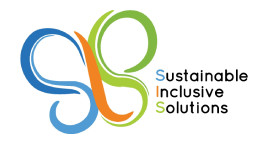 History:
History:
SIS was born from the commitment and purpose of its founder, Luciane Moessa, to connect Finance and Sustainable Development in a consistent way. She, who was already a lawyer and civil servant with relevant background in the socio-environmental area, chose this topic in 2014 for her post-doctoral research (USP and Università Luigi Bocconi) while she worked as legal counsel at the Central Bank of Brazil.
She made a deep dive in the topic, encompassing the identification and analysis of ESG financial regulations globally and also the mapping of best market practices, especially in Brazil and in seven countries with the most relevant financial markets in Western Europe. She decided to focus her career on this topic and in 2017 founded a small consultancy, also called Sustainable Inclusive Solutions (SIS).

On that path, Luciane has participated in the Laboratory of Financial Innovation (LAB), which is the main multi-stakeholder forum for Sustainable Finance in Brazil, since early 2018 and joined the Coalition Brazil Climate, Forests and Agriculture in June of the same year. The consultancy had the opportunity to provide training for the Central Bank’s supervision area on the topic of Socio-environmental Responsibility on two occasions (and the teaching materials were later updated to compose a Guide for Managing Environmental Risks and Opportunities in the Brazilian Financial Sector); to produce a diagnosis on the stage of Brazilian development finance institutions with regards to the integration of socio-environmental factors (in partnership with ABDE); conducted a study on financial regulation and deforestation risks involving tropical countries in South America and Southeast Asia for Chain Reaction Research; produced contents for training on deforestation risks for financial institutions (an initiative of WWF, UNEP-FI, FEBRABAN, ABDE and ABBC); in 2020, engaged with stakeholders from Brazil and five other South American countries, besides the three largest African economies, the first information and opportunities to get involved in the Taskforce on Nature-related Financial Disclosures (TNFD), which is the new frontier in environmental matters in the financial sector at a global level (integrated with the climate agenda); conducted an important study for GIZ on Social Risk Management in the Financial Sector in Brazil (resulting in the publication of a Guide on the subject); acted as a consultant for the Sustainable Banking and Finance Network, of the International Finance Corporation (World Bank group); and has been participating in public consultations of financial regulators (and other relevant entities) on sustainability issues at a global level (including Brazil, where she contributed decisively to Central Bank and SUSEP regulations and participated, albeit unsuccessfully, in CVM and ANBIMA’s 2021 public consultations).
In this regard, Luciane has already contributed to several consultations of the European Commission, two consultations of the US Securities Exchange Commission and consultations with capital market regulators in China, Chile and India. In addition, she continues to provide continuous training on the subject and disseminates high-quality, cutting-edge information on the ESG (environmental, social and governance) finance agenda in Brazil, through the organisation of BIS (Sustainable and Inclusive Chat), a free online event for stakeholders in this large and complex ESG finance ecosystem.
In this journey, Luciane has been relying on the partnership of many people and institutions, and has delved into the socio-environmental issues of some specific economic sectors, notably agriculture and mining, as she has always noticed that socio-environmental factors change a lot from one sector to another, and that the Brazilian financial sector has not given due attention to the peculiarities of each economic activity. She believes that the strengthening of three basic pillars is able to make Sustainability integration really mainstream in the financial sector (in Brazil or any other country): 1) financial regulation that is clear and consistent enough, to ensure a minimum level of integration of these factors, even for the most backward institutions in the market, while ensuring flexibility for leading institutions to keep moving forward; 2) availability of relevant socio-environmental data for the financial sector to use in its decision making – no one expects the financial sector to replace socio-environmental agencies, but it is expected to be a major user of information produced by them, and for that they need to be accessible, complete and having quality; 3) capacity for socio-environmental factors management by financial institutions, based on sufficient technical knowledge, which will usually require many capacity-building activities.
The Association SIS was founded on 13 June 2022.
Mission:
The mission of SIS, which now becomes collective, is to contribute with these three pillars, so that the financial sector, thanks to the action of regulators and market actors, is more aligned with Sustainable Development, since the majority of the economic activities look therein for their resources, either via credit, or via the capitals market, besides protecting themselves from risks, via the insurance market. This is an unpostponable, complex and very significant need of the times we are living in and, in order to achieve that, we need the cooperation of multiple stakeholders, in the public sector, in the private sector and also in the nonprofit sector – that part of society destined to promote positive transformations at collective level, of which the Sustainable Inclusive Solutions Association (SIS) is part.
Values:
The mission of SIS is based on the following values or principles:
• scientific methodology;
• transparency and democratic dialogue;
• recognition,of the interconnectedness between environmental, economic and social aspects and of the interdependence between interested or affected parties.
